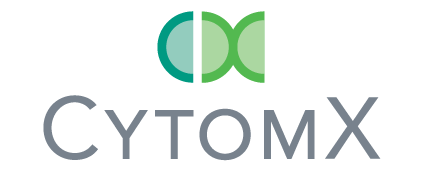Pioneering Potentially Life-Changing Conditionally Activated Therapeutics
Advancing our pipeline
Our expanding pipeline of Probody® therapeutics is built on a robust portfolio of proprietary and patented technology. Rooted in innovation and differentiation, and driven by our vision and mission, we are advancing a deep oncology pipeline of Probody therapeutics through our own bold science and partnerships with some of the world’s leading biopharmaceutical companies.
Research & development
Wholly-Owned or Retained US Rights*
*U.S. Rights include wholly-owned molecules or collaboration molecules in which CytomX has a right or option to share in U.S. commercial profits
Fully Partnered Pipeline





Lead candidates
We are utilizing our Probody® platform to develop potential best-in-class therapies against clinically validated targets and potential first-in-class therapeutics against novel, difficult-to-treat targets.
We believe our Probody therapeutics have the potential to:
- Create or widen therapeutic window – the balance between a therapy’s dose that is effective without causing unacceptable toxicity
- Enable new combinations of drugs previously not possible due to toxicities
- Expand the universe of viable therapeutic targets by opening “undruggable” target space
- Make new treatment options possible for more patients
CX-2051
(EpCAM-directed conditionally activated antibody-drug conjugate)
CX-2051 is a conditionally activated ADC directed toward the epithelial cell adhesion molecule (EpCAM), with potential applicability across multiple EpCAM-expressing epithelial cancers. EpCAM is a validated anti-cancer target for which systemic therapies not yet been developed due to widespread expression on normal tissues. CX-2051 is designed to open a therapeutic window for a systemically administered anti-EpCAM ADC. The drug candidate is currently in Phase 1a dose-escalation study in patients with advanced colorectal cancer; initial Phase 1a clinical data is expected in the first half of 2025.
CX-801
(Interferon alpha-2b Probody cytokine)
CX-801 is a wholly-owned interferon (IFN) alpha-2b Probody® therapeutic. Interferons are approved anti-cancer therapies but are limited by narrow therapeutic windows. Based on preclinical studies, CX-801 demonstrated a wide therapeutic index with an enhanced tolerability profile versus unmasked IFN, without compromising its potent antitumor effects. CX-801 has broad potential applicability in traditionally immuno-oncology sensitive as well as insensitive (cold) tumors. The drug candidate is currently in Phase 1a dose-escalation study in patients with metastatic melanoma; initial Phase 1a translational and biomarker data is expected in the second half of 2025.
Clinical trials
Two of our drug candidates are currently in clinical trials, investigating their potential utility in advanced or recurrent cancers.
Learn More
